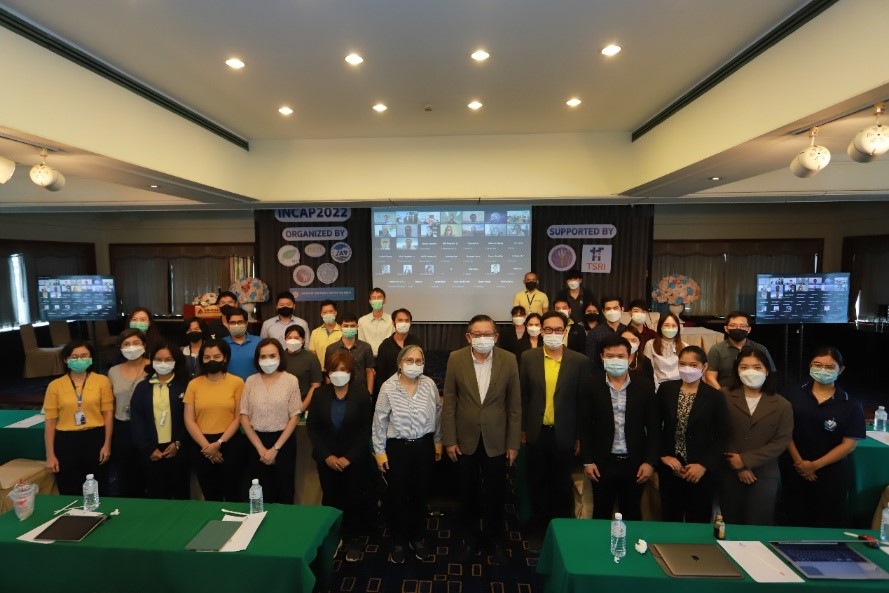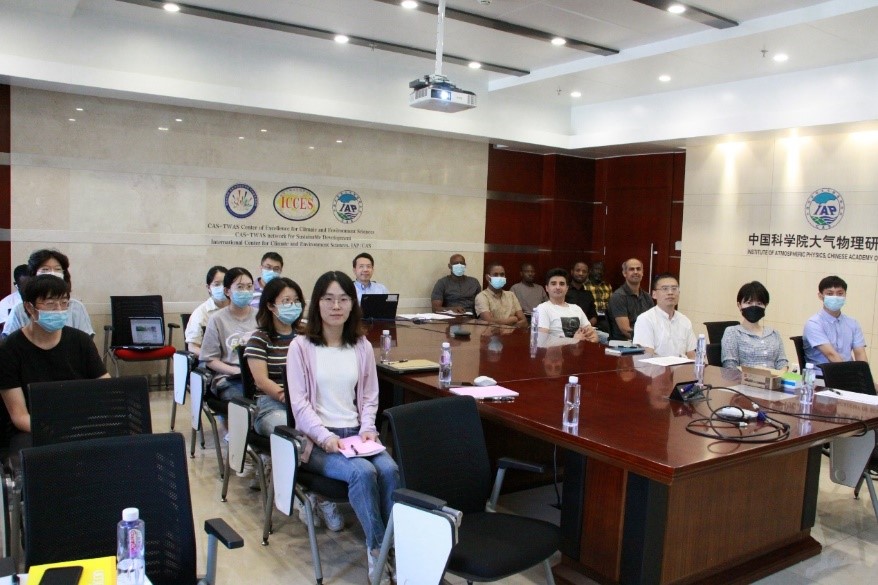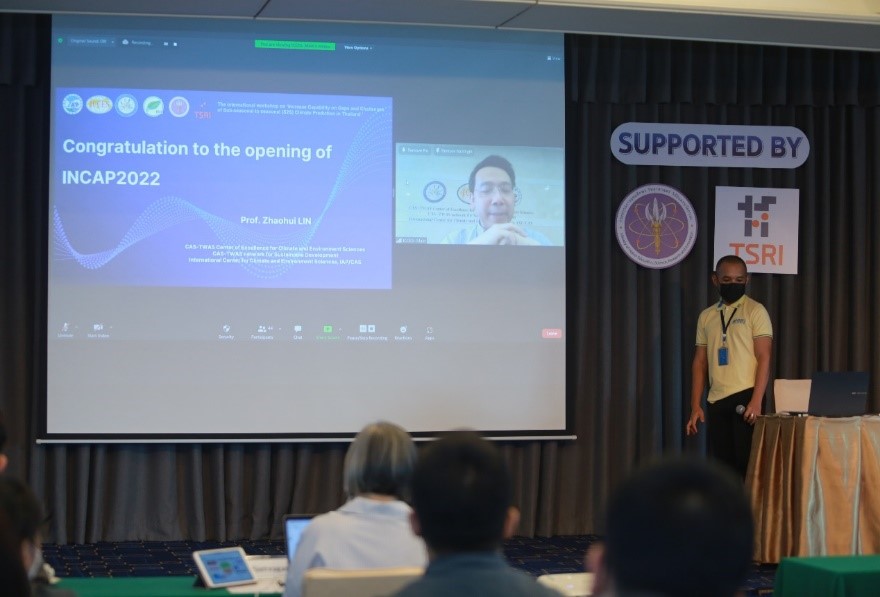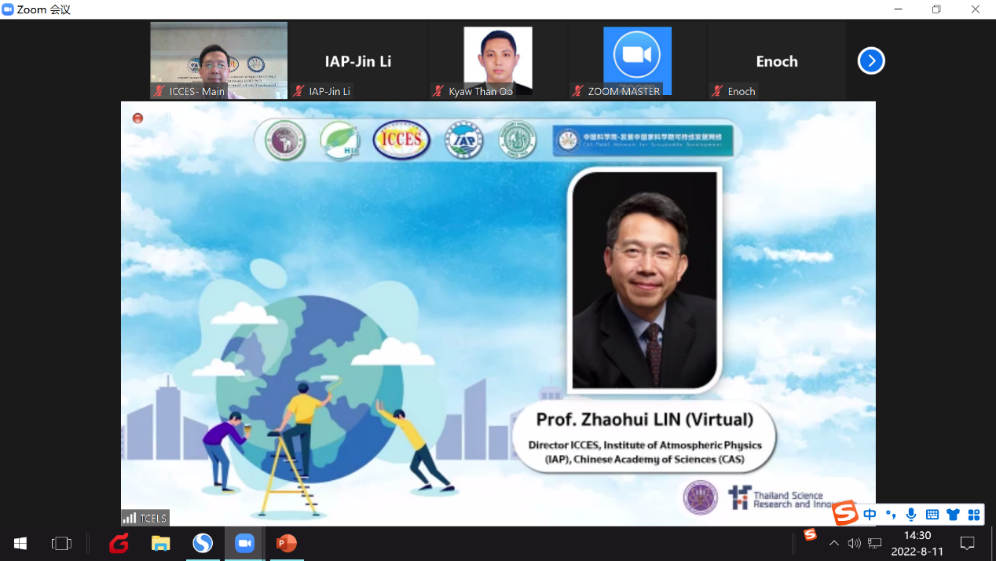10th -11th August, International Center for Climate and Environmental sciences (ICCES) co-hosted the international training workshop on ‘Increase Capability on Gaps and Challenges of Sub-seasonal to seasonal Climate Prediction in Thailand’ (INCAP2022) with Hydro-Informatics Institute (HII), Ministry of Higher Education, Science, Research, and Innovation (MHESI) of Thailand.



The two-day training workshop was in hybrid form. Two main venues were located both in Anoma Grand Hotel, Bangkok, and the conference room of the Institute of Atmospheric physics in Beijing. The workshop was physically and virtually attended by over 120 participants from Canada, Thailand, Kenya, Tunisia, Rwanda, Pakistan, Nigeria, Tanzania, Bangladesh, Myanmar, and China.
Prof. Zhaohui LIN, director of ICCES and Dr. Sutat, director of HII gave opening speeches. In his opening address, Prof. LIN talked about the history of ICCES-HII collaboration and the motivation of INCAP. INCAP, abbreviation of Increasing Capability, this HII-ICCES joint effort started in 2019, it committed to enhance the capacity of hydro-meteorological disaster modeling and prediction for young to middle-career researchers from Thailand and other developing countries. In August 2019, first INCAP training workshop was held successfully in Bangkok. The workshop enhanced knowledge and skills on “Data Science for Model Output Statistics (MOS) and Bias Correction Approach to Short-term and Seasonal Weather Forecast”. Prof. LIN further stated that the changing climate leads to frequent and intensified extremes events, which have severe adverse effects on human health, society, and the economy. The S2S climate prediction has been recognized as one of the most important issues for in the planning of agriculture, water resources, public health, and economic development, and for achieving the UN sustainable development goals.
The training workshop was aimed to provide fundamental information of sub-seasonal to seasonal (S2S) climate prediction, showcase evidence, case studies, tool and approaches that can support decision making, policy and planning for climate and water resource management at S2S time scale. 10 lecturers from Canada, China and Thailand covered various aspects of the theme, they provided the international experiences on S2S as well as the local efforts. For example, Dr. Hai LIN, a senior research scientist in Environment and Climate Change Canada (ECCC), gave a lecture of “Advancing sub-seasonal to seasonal forecasts”. Dr. Hai LIN is a member of the Steering Group of Sub seasonal to Seasonal (S2S) Prediction project of the World Weather Research Programmed (WWRP) and World Climate Research Programmed (WCRP), World Meteorological Organization (WMO). Dr. Kun YANG gave a lecture of “The role of soil moisture data in hydrometeorological studies”. Dr. YANG is a professor at Tsinghua University. He was the chair of CEOP/Water and Energy Budget Study (WEBS) project and the committee member of GEWEX/Global Land-Atmosphere System Study Program (GLASS). In the second day of the training, Prof. Zhaohui LIN gave a lecture of “CAS-ESM based S2S prediction system and its application for predictability study and real-time prediction”, and introduced the framework structure of CAS earth system model, as well as the subseasonal to seasonal prediction system, which has been widely applied for the prediction of climate disasters over China, Thailand, and other developing countries. Prof. Lin further encouraged the international collaborations amongst workshop participants for better use of prediction system and products for disaster prevention and preparedness over developing countries, especially over LDCs.
During the Q&A session, insightful discussions took place regarding S2S skills, mitigation measures to climate extremes, research gaps in the countries of the south and strengthening colorations of developing countries.



